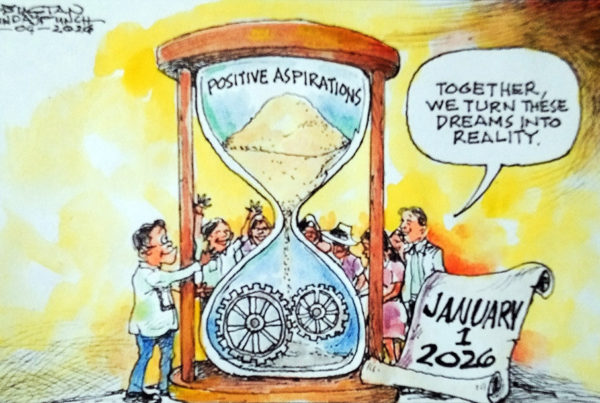Editorial
Fiesta poopers
FIESTAS are an unshakeable part of Philippine culture, rooted in the Catholic tradition of honoring saints passed on by the Spaniards over three centuries of colonization. But in the past decade, fiestas around the country, including in Pangasinan, have slowly taken on a new shape with municipalities and cities shifting focus on their particular local sources of pride, usually a natural resource, agricultural produce, or a popular industry or product. And the festivities have become grander too, usually with streetdancing competitions colored by elaborate costumes and synchronized routines, parades, all sorts of fun tournaments, and trade fairs. This means, too, that fiestas have evolved as a fundamental economic activity in the towns for which local governments allocate money as well as earn income from.
And there lies the crunch. Crooked politicians and government officials seem to have also found fiestas as a lucrative venture for their thieving ways. Dagupan is a glaring example with most of the chair appointed to lead the events over the years 2010-213, particularly the major Bangus Festival as well as the annual December city fiesta, failing to this day to account for the public funds used and the income earned. Then there’s Lingayen too in the news. How many more out there have streetdanced their way to the banks?
The policy of transparency and accountability in the collection and use of public funds was promised by all the candidates who won in the May 2013 elections. Nothing less can be expected of them.
Fiestas promote pride of place among locals, serving as a venue wherein communities come together to celebrate that which they collectively treasure, and a means for marketing their place to stimulate tourism and other industries. Corrupt politicians are the worst of party poopers and economic saboteurs — they should be prosecuted.
* * * * * *
Conscience
IN Ruby Tuason’s testimony in the Senate on the P10-billion scam of pork barrel funds that implicated Senators Juan Ponce Enrile, Jinggoy Estrada and Bong Revilla, she cited three reasons why she turned state witness — specifically naming Enrile and Jinggoy as having received kickbacks. Roughly, she said she did it because: “One, I would not want millions of Filipinos to hate me for life. Two, I would not want my grandchildren to hate me for what I have done. Three, I hate going to jail, and I’d rather die than go to jail.”
Tuason, a widow who was Erap’s social secretary when Erap (Jinggoy’s father) was president and who also admitted having received P40 million in kickbacks from pork barrel scam queen Janet Napoles, said she “personally” delivered commissions intended for Jinggoy and Enrile. She said that after fleeing to the US, she felt “guilt-stricken” and her conscience bothered her. Her daily visit to the church (“open 24 hours a day”) near where she was staying gave her the courage to turn state witness.
So help her, God.









